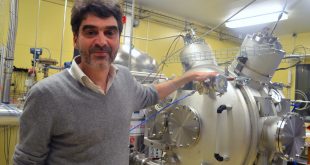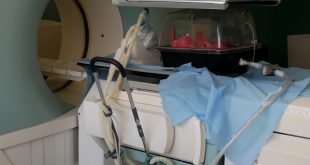People with brain injuries have complex cognitive and neurobiological processes. This is the case for people who have suffered a stroke, or who are in a minimally conscious state and close to a vegetative state. At IMT Mines Alès, Gérard Dray is working on new technology involving neuroimaging and statistical learning. This research means that we can improve how we …
Read More »Search Results for: Imaging
BioMICA platform: at the cutting edge of medical imaging
Among the research platforms at Télécom SudParis, BioMICA has developed bio-imaging applications that have already been approved by the medical field. Airways, its 3D representation software, received funding from Télécom & Société Numérique Carnot Institute. The original version of this article (in French) was published on the Télécom SudParis website One of the recommendations included in the March 2017 France …
Read More »4D Imaging for Evaluating Facial Paralysis Treatment
Mohamed Daoudi is a researcher at IMT Lille Douai, and is currently working on an advanced system of 4-dimensional imaging to measure the after-effects of peripheral facial paralysis. This tool could prove especially useful to practitioners in measuring the severity of the damage and in their assessment of the efficacy of treatment. “Paralysis began with my tongue, followed by …
Read More »David Gesbert, winner of the 2021 IMT-Académie des Sciences Grand Prix
EURECOM researcher David Gesbert is one of the pioneers of Multiple-Input Multiple-Output (MIMO) technology, used nowadays in many wireless communication systems. He contributed to the boom in WiFi, 3G, 4G and 5G technology, and is now exploring what could be the 6G of the future. In recognition of his body of work, Gesbert has received the IMT-Académie des Sciences Grand …
Read More »A European consortium for early detection of stroke and atrial fibrillation
The European project MAESTRIA, launched in March 2021 and set to run 5 years, will take on the major challenges of data integration and personalized medicine with the aim of preventing heart rhythm problems and stroke. How? By using artificial intelligence approaches to create multi-parametric digital tools. Led by Sorbonne University and funded by the European Union to the tune …
Read More »When engineering helps improve healthcare
Editorial. Tomorrow’s medicine will be at least 4P: personalized, preventive, predictive, participative. ‘At least,’ because some would readily add “precise,” “proof” (evidence-based), “pathway-based” etc. Beyond naming this type of medicine and determining the correct number of Ps, medicine is clearly undergoing a profound change. A transformation supported in part by engineering, which is bringing major innovations to the healthcare …
Read More »Is dark matter the key to the medical scanner of the future?
A team of researchers at IMT Atlantique is developing a new type of medical scanner called XEMIS. To create the device, the team drew on their previous research in fundamental physics and the detection of dark matter, using liquid xenon technology. The first time the device was tested was using small animals. It allowed the scientists to significantly lower the …
Read More »Aerosol therapy: An ex vivo model of lungs
A researcher in Health Engineering at Mines Saint-Étienne, Jérémie Pourchez, and his colleagues at the Saint-Étienne University Hospital, have developed an ex vivo model of lungs to help improve medical aerosol therapy devices. An advantage of this technology is that scientists can study inhalation therapy whilst limiting the amount of animal testing that they use. This article is part …
Read More »Marine oil pollution detected from space
Whether it is due to oil spills or cleaning out of tanks at sea, radar satellites can detect any oil slick on the ocean’s surface. Over 15 years ago, René Garello and his team from IMT Atlantique worked on the first proof of concept for this idea to monitor oil pollution from space. Today, they are continuing to work on …
Read More »Light, a possible solution for a sustainable AI
Maurizio Filippone, Professor at EURECOM, Institut Mines-Télécom (IMT) We are currently witnessing a rapidly growing adoption of artificial intelligence (AI) in our everyday lives, which has the potential to translate into a variety of societal changes, including improvements to economy, better living conditions, easier access to education, well-being, and entertainment. Such a much anticipated future, however, is tainted with issues …
Read More » I'MTech L'actualité scientifique et technologique de l'IMT
I'MTech L'actualité scientifique et technologique de l'IMT









